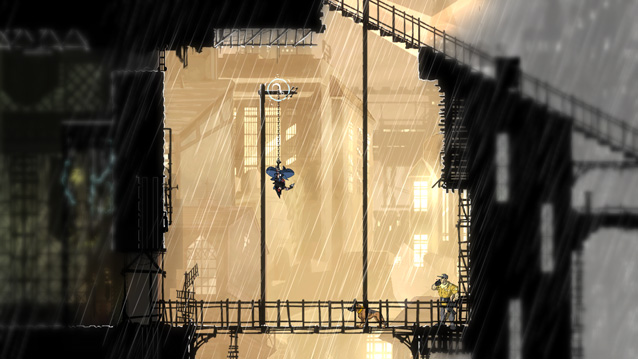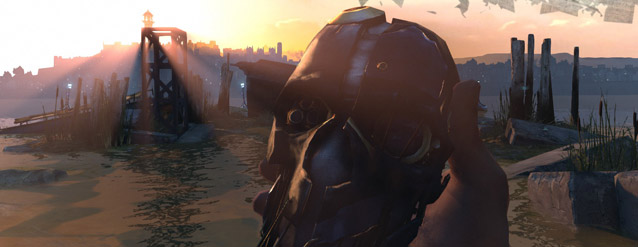

While it’s often lost in arguments about framerate, resolution and other such nonsense, one of the most positive cultural shifts in this console generation is the rise of self-publishing on consoles. Xbox One’s ID@Xbox might not exactly be Steam, but it allows games like Storm In a Teacup’s narratively ambitious Nero to exist, free from the constraints of a traditional publisher.
In truth, a game like Nero would probably have struggled to attract big-name moneymen. This is a game with no action to speak of, certainly no shooting, no season pass, no loot. Instead, we have a first-person ‘experience’, where you’re asked to move through a beautifully drawn world, piecing together a story about, quite simply, a family.
Despite much of the narratives familiarity, though, the setting is very much otherworldly. You play as a child, although you’re more of a hooded alien than a human, and your character is as much of a mystery as the world he’s walking through, at least early on.
If you’ve played games like Dear Esther on PC, or even PlayStation classic Journey, Nero’s lack of action will make more sense. A disembodied voice guides you through the thoughts and feelings of characters you never see, while on-screen, in-world writing helps you piece together the rest of the story, as well as the world you’re moving through.
It’s not just a walk-em-up, though. Nero features puzzles, none of which are particularly taxing (save for one right at the end), but these simple switch and timing conundrums do help break up the walking. Especially helpful, as the speed at which you move through the game is glacial – no one has ever walked this slowly, and even with the run button held down, you’re barely moving at crawling pace.
This hamstrung pace is likely to mask the game’s technical shortcomings. While some areas look lovely, and the art design is excellent, it’s both stuttery and texturally bland. These things really don’t matter, though – nothing impinges on the actual experience, and it’s easy to forgive given the size of the team and the clear passion on display.
Perhaps less successful, though, is the writing itself. Storm In A Teacup is an Italian team, and there are some slightly clumsy sentences written on the walls. It’s a shame the team couldn’t bring in a script editor to smooth a few rough edges. While it can be endearing, Nero deals in some pretty heavy subject matter, so even a bit of odd phrasing here and there does snap you out of its otherwise carefully woven tale.
And while the story is unquestionably powerful and conjures up some memorable imagery, it is perhaps a little too heavy-handed. Such strong subject matter is always going to deliver an emotional wallop, but the relentless on-screen writing does continuously hammer the point home. Perhaps a little more environmental storytelling – a bit more ‘show don’t tell’ - would have made the narrative match the delicacy of Nero’s music and visuals.
Still, despite technical shortcomings and some questionable writing, this is a fine addition to the ID@Xbox canon. Nero might not be the most successful example of videogame narrative, but it’s encouraging to see games that break the indie platformer/gruff action man mould on Xbox One. And despite the puzzling not exactly troubling the grey matter, it’s also good to see a story experience unafraid of still being a videogame.




 Dishonored Blueprint Locations Guide
Dishonored Blueprint Locations Guide Fallout 4 Mission Guide: Road to Freedom
Fallout 4 Mission Guide: Road to Freedom DAI -The High Dragon- tips to become mighty dragon-slayer
DAI -The High Dragon- tips to become mighty dragon-slayer Lego Batman 2 Walkthrough
Lego Batman 2 Walkthrough Sexually Assaulting Women (Verbally or Otherwise) at Gaming Conventions is Not OK
Sexually Assaulting Women (Verbally or Otherwise) at Gaming Conventions is Not OK